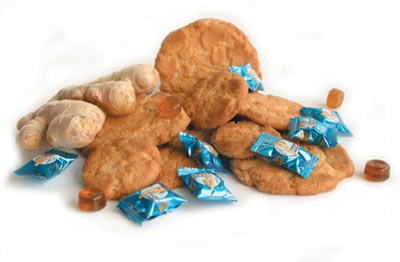| Health on a Shoestring Ginger |
| http://www.sina.com.cn 2004/11/24 16:55 thats China |
 Ginger Spice up your life with this golden wonder By Vanessa Mulquiney It comes powdered, encapsulated and candied - as well as in its natural, root-like form. But while ginger (jiang) may have many guises, its reputation as one of nature's most effective and versatile medicinal plants remains unchanged. Think of it as nature's wonder drug: cheap, easy to find and recommended by Confucius. Ginger in China The Chinese have embraced ginger's benefits for centuries and used it both as a spice in cooking and for its medicinal qualities. Even the great sixth century B.C. philosopher and teacher Confucius reserved a permanent place at his dinner table for the plant, a fact preserved for posterity in his Analects, which state: "He was never without ginger when he ate." The example set by the sage Confucius seems to have stuck: To this day, ginger remains one of the most essential ingredients in Chinese cuisine.
Today, Traditional Chinese Medicine (TCM) experts tout ginger as one of the most reliable natural remedies used to aid digestion, soothe tired muscles and settle upset stomachs - and that's just the beginning. "Without ginger, there would be no TCM," says Stefan Brinkop, a TCM practitioner at Beijing's Vista Clinic. "It's a precious, all-around talent that can be used for many aliments." Nature's Medicine Try these ginger remedies to get rid of little health annoyances. Poor Digestion "The spleen and stomach have a close relationship in TCM, and both need to work well in order to receive food and nourish the body," says Brinkop. The prescription: To aid digestion, follow a large meal with a cup of ginger tea by placing a few thinly sliced pieces of fresh ginger in a cup of hot water. "A good guideline is 2 to 3 cups a day, but one cup may be enough for some people," Brinkop says. "Your body will tell you [how much it needs]. If you begin to feel hot and sweaty, stop." |
|
|
|
|
|
| Annotation |
| 新闻查询帮助 | |
| 热 点 专 题 | ||||
| ||||
|
教育频道意见反馈留言板 电话:010-62630930-5178 欢迎批评指正
新浪简介 | About Sina | 广告服务 | 联系我们 | 招聘信息 | 网站律师 | SINA English | 会员注册 | 产品答疑
Copyright © 1996 - 2004 SINA Inc. All Rights Reserved
版权所有 新浪网![]() 北京市通信公司提供网络带宽
北京市通信公司提供网络带宽
